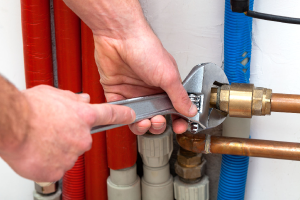In a hot housing market, sometimes it’s better to build your own home than competing for one house with other desperate buyers. In fact, buying land is extremely exciting. Building an environment for the family to spend the future together and customizing it according to your lifestyle is much better than living in a home that somebody else wants.
Choosing the best piece of land is likely the most critical decision you’ll ever make, as it affects the entire construction process. It’s better to do proper research, begin with a strong foundation, get everything right than making major mistakes leading to delays, compromises, damage, and skyrocketing expenses. Those who are keen to achieve their construction goals turn to 3-D laser scanning services and generate successful surveying of their chosen property.
Like any real estate purchase, buying an empty lot is a complex decision. There are plenty of considerations involved for easements, environmental conditions, and zoning restrictions before building a solid property. To help you get started, here are ways to choose the right vacant lot for your future home.
Location
The most critical factor to consider when buying any piece of land is the location. When it comes to real estate, location outshines everything else, making it a top priority in land purchasing.
Once you figure out the city, town, or county you prefer to live in, consider whether you want to stay in a populated urban area or a rural lifestyle. Some might prefer a secluded location for privacy or a sprawling urban center for accessibility.
If you plan to make an investment out of your home, make sure the land has a resale value. You can take a tour of your desired neighborhood or research online. Depending on your lifestyle, you have to consider the location of the land and its proximity to nearby amenities, such as parks, groceries, malls, public transit, and other basic services.
You may also factor in the travel hours to reach your job and your children’s school. Basically, it’s like shopping for a piece of land and a suitable community at the same time.
Permits
Here’s a hard fact about real estate life: Everything you’ll build will always require a permit. Building permits serve as written authorizations issued by the local government to construct a project. This works for remodeling and construction projects to ensure their compliance with construction, zoning, and building codes, including the safety of the construction site.
Before the construction, you have to handle the government zoning and file all the required permits for the building. While they bring plenty of hassle, permits offer a lot of advantages. For starters, they protect you against the nasty behaviors of your neighbors and ensure a strong foundation that won’t collapse at any moment.
Also, the entire construction process is loaded with permit requirements, from the plumbing system, fireproofing, sewage maintenance, and electrical work. Although it’s common among homeowners to finish a construction project without applying for specific permits, it’s dangerous to skip the official permit process. This can lead to expensive damage, safety risks, additional remodeling, and difficulty in selling the property.
Surveying
If a piece of land has been vacant for many years, there are chances that neighbors have trespassed the property lines, whether intentional or not. Any land might also involve deceptive or subtle issues, so you need to be aware of exactly what you’re getting into. Thus, it’s better to conduct a complete survey, soil, and geology report when buying land.
There are different kinds of surveys: control surveys, topographical surveys, environmental surveys, and property/boundary surveys. These surveys provide in-depth analysis that affects the decision on whether to purchase land, such as the property dimensions, soil percolates, environmental hazards, potential flooding, zoning, deed restrictions, easements, and other notable features.
Even if there’s an existing survey, it may be outdated. It’s best to get a newer survey to precisely define the property line, which can be helpful in legal matters. It can also determine the exact elevation determinations and the dimensions of the house.
The total cost of a land survey depends on certain factors: the size, location, and the type of property. Some also consider the type of survey, the number of hours it will take to finish the survey, and the labor cost of the surveyor for the research.
Buying a vacant lot could be the best move for you to make that dream home a reality. Not only does it offer greater customization, but it’s also a safe investment and opens opportunities to create the best and highest use. So, take note of our suggestions above, and you’ll surely find the right land that meets all your needs.




